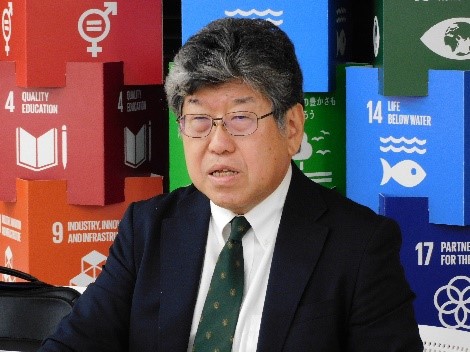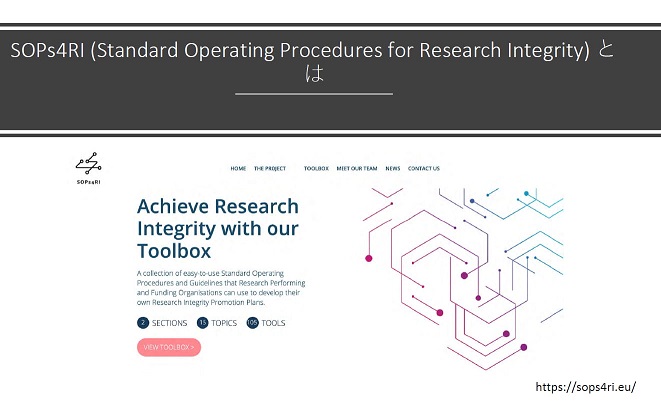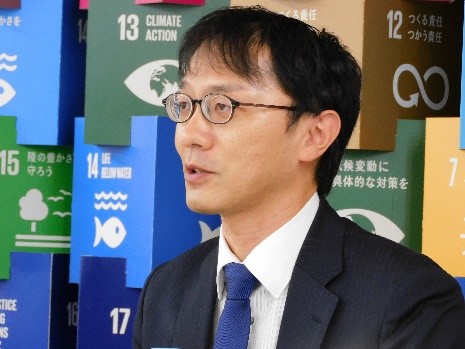Event Reports
The 1st JST Workshop in 2024 on Promoting Activities toward Research Integrity, "Considering Effective Use of Gaps in Ethics 3 - Gray Zones in Research Activities" (17.Jul.)

*Gaps in Ethics 3 - Gray Zones in Research Activities https://www.jst.go.jp/kousei_p/en/measuretutorial/mt_video_e.html
Lecture: Considering Effective Use of Gaps in Ethics 3 - Gray Zones in Research Activities
Professor Jun Fudano (Waseda University)

After explaining the current status and issues of research integrity education and the current status of QRPs, he especially emphasized the importance of research integrity (ethics) training for PIs and senior researchers. He stated that, in Europe and the United States, the direction is shifting from preventing research misconduct to promoting research integrity and introduced SOPs4RI (Standard Operating Procedures for Research Integrity) (https://sops4ri.eu/).
The "Toolbox" of SOPs4RI presents specific methods how various institutions including universities and funding agencies should promote research integrity. Prof. Fudano cited "Research integrity training" (RI Training) from the nine areas in the "Toolbox" as an example. In "Motivate and reward" section in "Key recommendations," he indicated, "Motivating and rewarding researchers are useful to promote active efforts toward research integrity education."

Lastly, he indicated that the goal of research integrity education should be determined not only from the viewpoint of preventive ethics, such as "Let's not do these things," but also from the viewpoint of aspirational ethics, such as including what is good research and how can we manage the laboratory to do better research. He concluded that the goal of research integrity education is to promote "responsible conduct of research" by sharing the value to contribute to the well-being of people and society.
Lecture: Cultivating Awareness of Research Integrity Autonomously
Associate Professor Rei Nouchi (Hiroshima University)

Assoc. prof. Nouchi said that the framework of the VIRT²UE Project is not only for researchers to act in accordance with laws, regulations, and rules but also to act while considering what is desirable as a professional. The target of this project is senior to mid-career researchers, and it is designed to self-study, acquire the teaching skills necessary to progress their work, put their issues into practice, and develop trainers in Research Integrity through follow-up. He pointed out that it will be an opportunity for researchers to understand and reflect on (self-reflection) responsible conduct of research as educators.
How can this project be utilized in concrete terms? He explained, "The point of the VIRT²UE Project is not a rule-based education but is to understand the fundamentals of research integrity."
"Once we could understand the idea which lay behind the issues, we will be able to respond to any QRPs that occurs no matter how it is new to us." "We will be able to judge what kind of act is good, not just remembering rules."
"Once we could understand the idea which lay behind the issues, we will be able to respond to any QRPs that occurs no matter how it is new to us." "We will be able to judge what kind of act is good, not just remembering rules."
He suggested that we could conduct the training course where the essence of this project is used to mutually conduct training between people in the same position and profession using video materials, and practice the education and conduct follow up for students.
Group work
In the group work, the participants discussed how to utilize the video material. In the first 25 minutes, they listed the video scenes that they thought there are problems or felt uncomfortable and discussed what kind of problems were there and how they could be used for training. In the second 25 minutes, they assembled a training course for PIs using the video material. Everyone was working hard while sharing their opinions with the group members.Overall Review
Assoc. prof. Nouchi mentioned about authorship of research papers, etc. and said, "Becoming an author accompanies responsibility, and if research misconduct occurs, you may have to take a joint responsibility. So, do not become a co-author without careful consideration. I think it would be better to think back again why we do research. It is because we have things we want to know, and we want to explore." Prof. Fudano also commented, "I would like you to think about it in terms of how to promote research integrity that leads to better research, rather than to think about what we should not do in terms of preventive ethics. It is important for everyone to do good research, and I hope you will spread such awareness."
Prof. Fudano also commented, "I would like you to think about it in terms of how to promote research integrity that leads to better research, rather than to think about what we should not do in terms of preventive ethics. It is important for everyone to do good research, and I hope you will spread such awareness." In the questionnaire, many opinions were received from the participants, such as "I could get ideas that can be put into practical use." "I was motivated by the enthusiasm of a variety of participants working on the group work." As for the future issues to be solved, securing time for researchers and raising awareness, etc. were commented.
Previous JST Workshop Report"Promoting Activities toward Research Integrity - Experiencing Ethics Education Using Video Materials and Considering Effective Practices"

